#encounter roleplay
Text
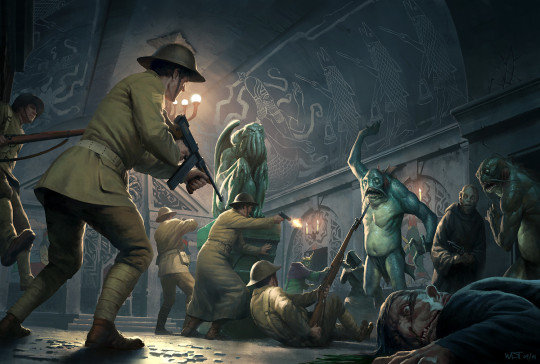
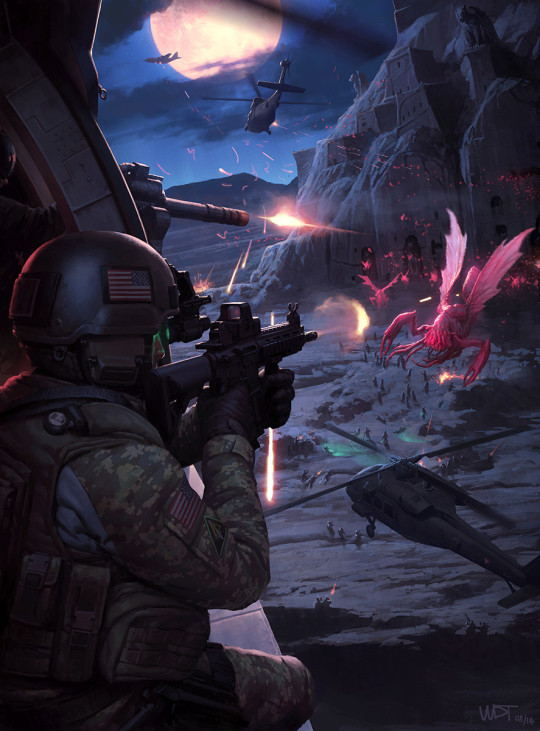
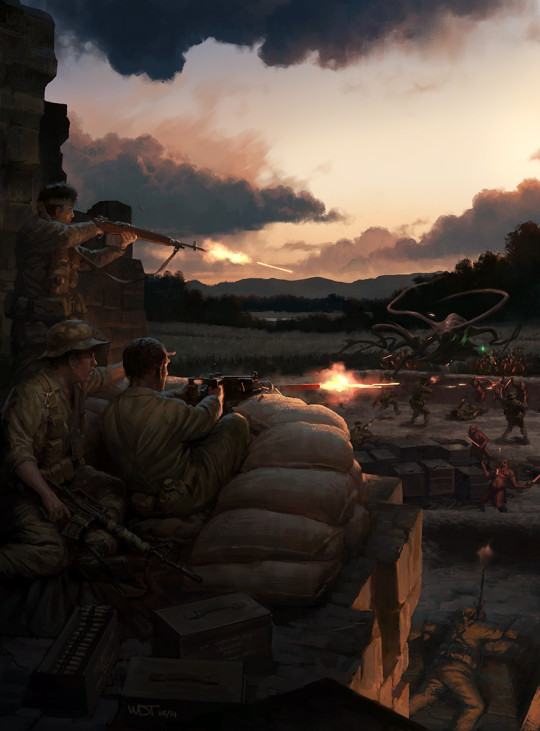
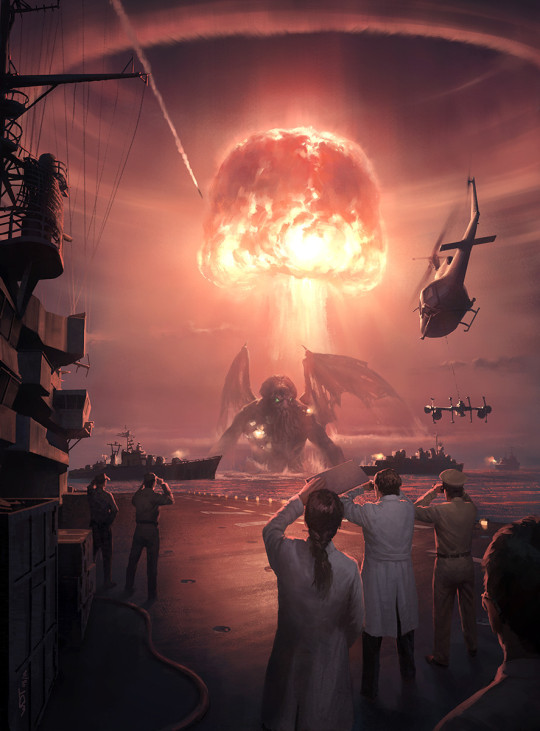

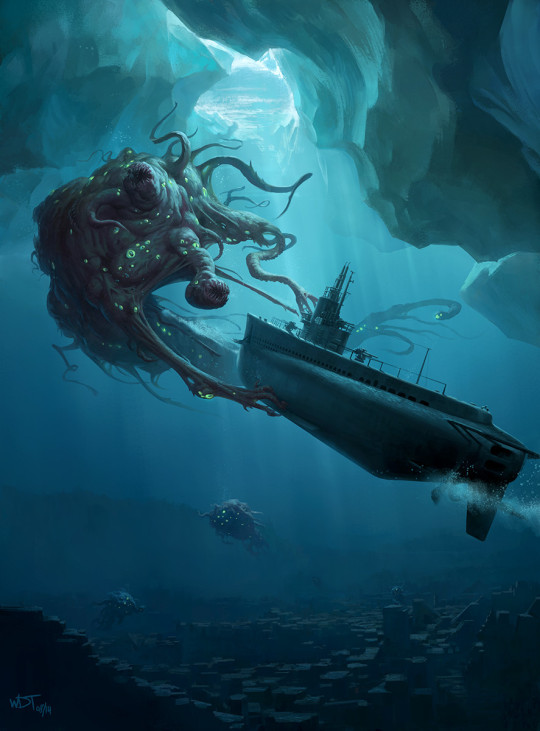
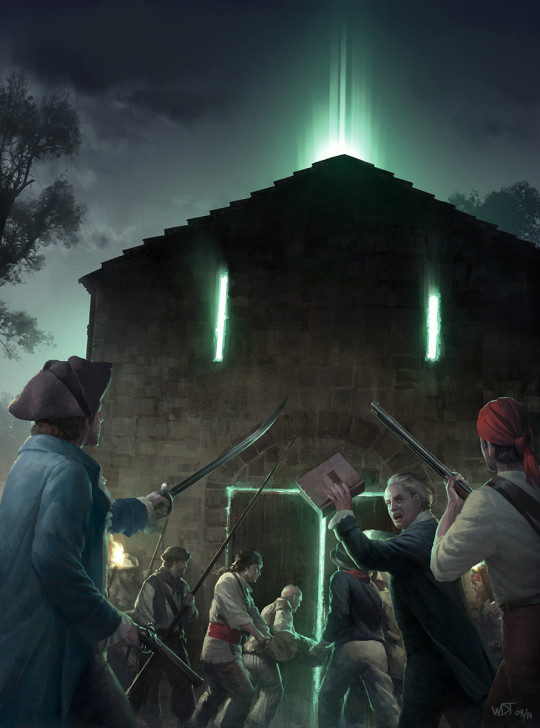
Darren Tan
Check out Tabletop Gaming Resources for more art, tips, and tools for your game!
#call of cthulhu#lovecraft#cthulhu#tabletop rpg#rpg#tabletop gaming#pen & paper#roleplayer#roleplaying games#games#inspiration.pen & paper games#dnd#d&d#pathfinder#dungeons & dragons#dungeons and dragons#fantasy rpg#horror rpg#encounter
771 notes
·
View notes
Text

#d469son#black and white#gay masculine#gay men#beautiful men#gay encounter#sexy gay men#gay dad and son#i’m ready daddy#men who love men#gay roleplay
593 notes
·
View notes
Text
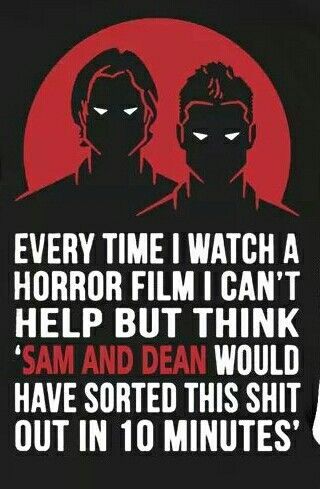
Every single movie!
#funny#haha#lol#humor#funny memes#funny shit#funny stuff#relatable memes#best memes#meme#supernatural beings#supernatural#supernatural fanart#supernatural gif#supernatural encounters#supernatural family#dean winchester#sam winchester#supernatural fandom#supernatural rp#supernatural fanfiction#supernatural roleplay#spn#castiel#deancas#spn meta#supernatural bunker#supernatural cw#supernatural dean#supernatural elements
98 notes
·
View notes
Text
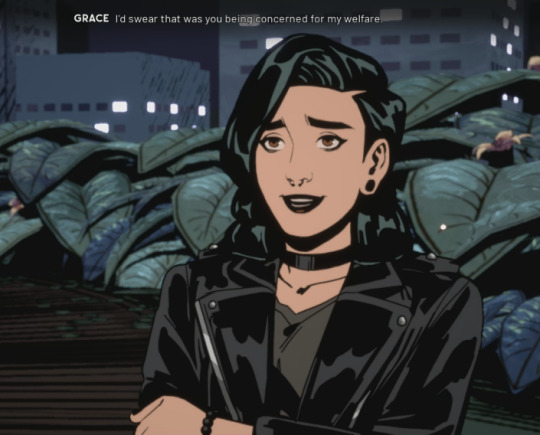
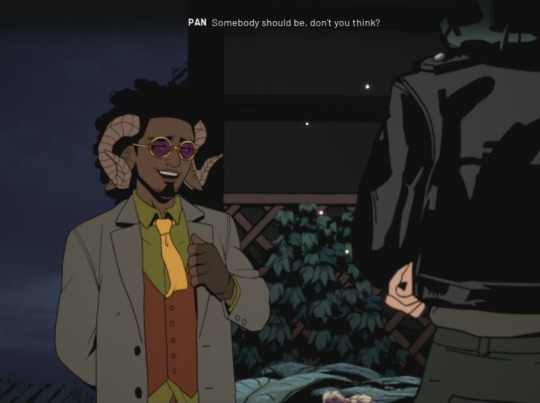
Hi, yes, I adore him actually.
#stray gods#stray gods the roleplaying musical#grace stray gods#pan stray gods#this is the first time I've encountered this dialogue and lord am I soft#new 🩷 dialogue go brrrrrr
161 notes
·
View notes
Text
Letting Players Feel Smart in Combat
or, "Running Encounters with an Information Economy"
PREAMBLE: Something that frustrated me for a long time as a player in TTRPGs was how hard it could be to guess enemy tactics. There are a lot of things that you can do with good tactics, but a lot of the time you lack the information to use those tactics. For example, setting up a prepared action to counterspell just wastes your turn if nobody tries to cast anything. This can be especially frustrating when you're up first in the initiative, and don't have much more than just a description of who/what you're fighting to go off of.
AN ANECDOTE: One day I decided to try an experiment. Each round of combat was supposed to be happening in the same six seconds of elapsed time, right? So, the next time I went first, I asked my GM if I could see what the enemies were doing - everything was happening at the same time, so I should be able to read their body language, the directions they were starting to move, and where they were looking to get an idea of how they were going to act, right?
As I honestly had been expecting, my GM said no. It wasn't their turn yet, so they weren't doing anything yet. I resolved that I did not want to run my own games that way, so I came up with some ways that when I ran a game, I could help my players to not be going into battle completely blind.
THE POINT: Tipping players off to enemy tactics is just good GMing. When they get a "read" on an enemy, they'll feel like an absolute genius. When the party plans for what the enemy will do and uses tactics to put the odds in their favor, they will lose their minds over how cool they feel. Here's a couple things I do to make that happen.
The first is giving enemies tells for what they're planning, which sounds simple, but actually requires a change to how encounters are typically run. Basically, you should know what an enemy will do before their turn, and typically at the end of the last one. Then you narrate them doing something to hint at that as part of their action. For example, a dragon might inhale deeply before using its breath weapon, or a manticore might slowly go from lashing its tail from side to side to holding it stiff as it prepares to launch a volley of spikes.
You don't have to stay committed to a course of action once you've given a tell, but if the players do something that would cause an enemy to reconsider its tactics (or determine them, if you hadn't decided anything for it yet), that's another time to give a tell. For instance, you might have already described a dire wolf lowering on its haunches as it starts stalking toward the ranger, ready to pounce, when the halfling rogue stops taking cover behind the fighter. In that case, you might describe the dire wolf shifting its stance, licking its lips as it turns its attention to this weaker-looking prey.
There's no need to give a tell for every action, of course. That would get taxing for you, and tedious for the party. Generously sprinkling in clues as to key things enemies want to do can keep players engaged, and help them break through the indecision about what to do with their own turns, though.
That brings me to my other trick. If you read the anecdote section above, this is something I came up with as a direct result of that. I decided to add a special action type that is just for the players, the "Observe Action". Every player gets one Observe Action on each of their turns that they can use in a number of ways to get more information about the conditions on the battlefield, or to gain an advantage.
The first use is just applying their skills in the normal way. If they could use a skill to recall information about a particular creature, they now do this as an Observe Action. This one is technically an explicit nerf in Pathfinder, since recalling is stated to be no action, but I find that most groups only check on one monster at a time anyway, and on the occasions when they don't, starting combat with check spam just slows the action down, so I include it. It usually doesn't hurt anything, and having it on the list can actually remind players that doing this is a thing they can do in the first place.
The second is also more or less a bookkeeping task, and that's using informational magic, like the Detect spells. It doesn't change the cast time, but once the spell is up, any further focus to gain more information uses their Observe Action. This is mostly just to remind players they can have these going while they fight, but I do also make any part of using the spell once cast that would normally be a Standard Action into an Observe instead, as a small bonus.
The third use, and the first truly new option, is to "read" a group. This is similar to recalling information, but allows for some different questions to be asked. Use these as a baseline.
Who has the highest/lowest HP?
Who can deal the most damage with physical attacks.
Who has the highest bonus to hit?
General "lean" of the group's alignment. (Most common alignment component on a single axis.)
How challenging does this fight look? (General CR range of the encounter, described as Easy, Average, Challenging, etc...)
Individual with the highest/lowest value in a particular ability score.
Highest/lowest value in a particular saving throw.
Basically, this option is there to help players decide who to focus their attention on. Let them use it for whatever will help them get a better idea of who or what they're facing. Let them ask their main question up-front before rolling to establish the check (whatever skill and DC seems appropriate), but let them ask additional questions after if they get a high roll.
It goes hand in hand with the last option, which is gauging intent. This one should probably be done with Insight/Sense Motive, and it just comes down to that original question. What's going to happen next?
The first way this can work is that the player focuses on a specific enemy, and gets a sense of what that enemy specifically intends to do. In other words, the player tells you who they want to get a "tell" for, and if they succeed, you give it to them.
Alternatively, the player might ask if anyone in the enemy group is about to take a specific action. For example, "Is the cleric about to get targeted." or "Does anyone look like they're going to call for backup?" So basically, instead of focusing on the behavior of one individual, the player is staying alert for a particular situation. Don't let the players get too broad with this one, of course, but it's okay to be a little generous with what they can ask about.
Even more than when I advised it above, if someone successfully gauges the intent of their enemy, and that intent changes, let them know. You should treat a success as them continuing to be alert to what they were observing for until their next turn.
I also toyed with the idea of letting players use their Observation to look for openings to improve their chance of hitting, or for a weak spot to do more damage. I like the idea of this, but felt like it stepped on the toes of other, existing options too much, and would be too tempting to players over the other uses. So I decided to keep Observation Actions as purely a source of information, and not directly pumping numbers. Still, if it sounds like it would work for you, try it out.
For everyone who read this incredibly long post of mine, I hope it helps you out. I haven't done a post like this in a long time, and I really appreciate you taking the time to read it. If these rules improve anyone else's games, hearing that would really make my day.
#ttrpg#tabletop roleplaying#dungeons & dragons#pathfinder#game mastery#running the game#encounter design#roleplaying games#game master advice#house rules#long post#essay#homebrew#this is just what works for me
86 notes
·
View notes
Text
are you a player looking for a forum to converse with other fans? sign up today for this totally free experience run by people who care! you'll probably get the exact username you want! slow pacing, polite folks and mutual excitement about the wondrous world of final fantasy xiv - join us! (oneofusoneofusoNEOFUS)
#final fantasy xiv#final fantasy xiv roleplay#final fantasy xiv fanfiction#final fantasy xiv fanart#final fantasy 14#i know skar is busy but i love the forum too#i check it every few days if not every other day#i like to see what people share#plus there aren't a lot of places you can discuss things without immediate mobbing... this is a nice quiet place for civil discussion#i've encountered some lovely writers and sweet people
34 notes
·
View notes
Note
Hiii, i wanted to know if you'd be okay with a Poll design that's mostly human (like moree human than dragon) because i may have some design ideas for Poll that i'll maybe draw idk!
YES YES YES YES YES I WILL C R Y IF YOU GIVE ME FANART OF MY EGG (/positive)
#I'm going to have to take a break from the playdates (drawing them and adding to my list for a few days because#I have absolutely NO MORE POLLS scheduled. I haven't been able to schedule in a little while#I am ALSO preparing to move houses in a few weeks so we are dealing with a lot of stress#But everything is going great! We haven't encounted any issues yet!#(Other than our executive dysfunction meaning we've barely packed)#not a poll#But besides all of that#I want to see you all interacting with each other's eggs! go on playdates! form playground cliques!#Warrior cats roleplays!!! it would be so cool!!!#tag me in any Shenannigans I really want to see them
11 notes
·
View notes
Text
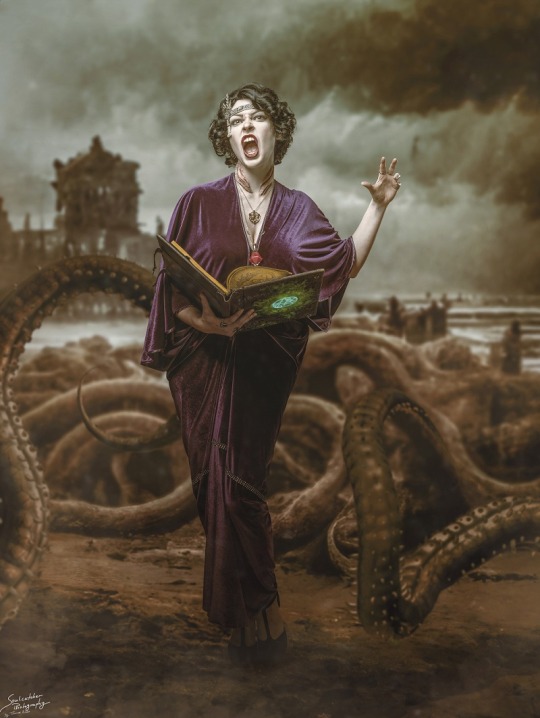


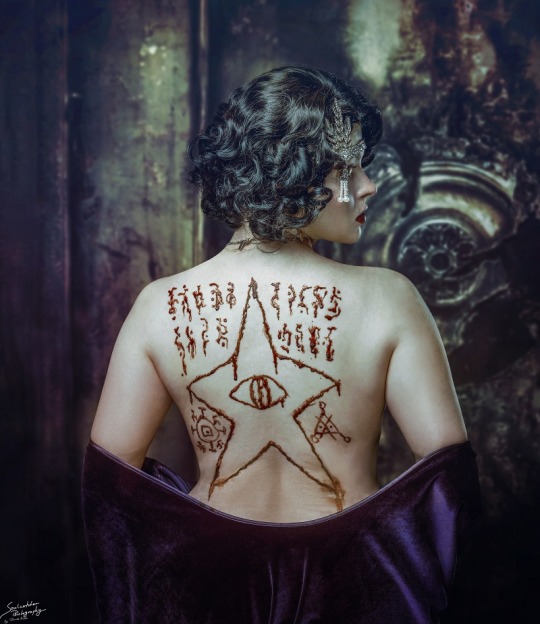

~Asenath Waite: Cult of Dagon~
Inspired by H.P. Lovecraft's work we tried to go for a Cthulhu cultist themed session.
Based on the only really remarkable (at least seemingly) female character by Lovecraft, Asenath Waite, I wanted to create a glamorous look with only one single detail that would seem rather offputing. To emphasize with the fish people theme, I dropped Asenath's huge, fishlike eyes and rather went for gills - except for the one picture where I tried to make my eyes pop as much as humanly possible... ^^°
_
Model+MuA: Mircalla Tepez
Foto+Edit: _soulcatcher_photography_
Neronomicon: Naruvien
#call of cthulhu#lovecraft#cthulhu#tabletop rpg#rpg#tabletop gaming#pen & paper#roleplayer#roleplaying games#games#inspiration.pen & paper games#dnd#d&d#pathfinder#dungeons & dragons#dungeons and dragons#fantasy rpg#horror rpg#encounter#cosplaygirl#asenath waite#the shadow over innsmouth#innsmouth#larp#larp costume#larp character#larp oc#dagon#horror photography#halloween aesthetic
12 notes
·
View notes
Text
I'm completely taken aback by the (I'll tell you under the cut because spoilers) storyline in Baldurs Gate 3
I mean, yes, it makes total sense that after everything this would be a thing in Act 3 but it feels so personal. It feels so raw
This was made by people that care
I don't think the game even lets you be an asshole about it even though it's an RPG and you usually do get every option with everything
There's a refugee storyline in Act 3 and I'm not very far yet but ... this hits completely different than the rest of the game. I was just asked for donations. People all around the city assume me and my group are refugees as well, which shifts the whole perspective as a player. I haven't seen one awful dialogue option I could pick yet, just some that don't care that much, but none that were affirming of the hatred all around us.
If you didn't take the evil route in the beginnung you even come with personal involvement in this, as you saved the tieflings in Act 1 and maybe they made it to the city and maybe they didn't (mine didn't) but you probably cared about them; you brought some refugees yourself. You celebatred their survival with them. Dammon fixed Karlachs heart. The thieving kid had big plans for her life. For me, now their refugee tent is empty but for one that made it and it's devastating to see. It really puts the whole storyline into perspective as I see this tent and how big it is and how empty. I'm so impressed with this storytelling and this obvious deep care that went into this aspect of it. This mattered to the developers.
#bg3#baldurs gate 3#bg3 spoilers#also yes this game is the reason i've been gone for almost 2 weeks#I've literally been doing nothing but this and working occasionally. I've got 63 h in this and my guess is that there are 20-30 yet to come#playing astarion obviously and yes my astarion cared for the tieflings because he bonded with the thieving kids okay#and the party was fun and then they all died without him (me) intending for that to happen and he didn't like that#shut up I'm roleplaying he can have complex feelings in my mind okay#he's not evil he just wants power. and i gave him power he can kill a 70 hp enemy in 2 shots when he starts the encounter#(he's ridiculously overpowered. i multiclassed him into ranger. he's also got the tadpole stuff going on)#so he gets to care about gale and some tieflings kids okay. as a treat
28 notes
·
View notes
Text

New map is up! You can buy it now at DM's Guild, my Kofi shop and DriveThruRPG!
Check out my Hill Giants Den, with lots of places to climb, hide and be squashed by a giant. I hope you like it! Please leave a nice review if you get one 💜
#my art#digital art#battlemaps#encounter map#dnd#dungeons and dragons#pathfinder#ttrpg#tabletop maps#tabletop roleplaying games#illustration#art#artists of tumblr#kofi#buy me a kofi#dm's guild#dms guild#drivethrurpg#hill giant#giant#giants den
10 notes
·
View notes
Text
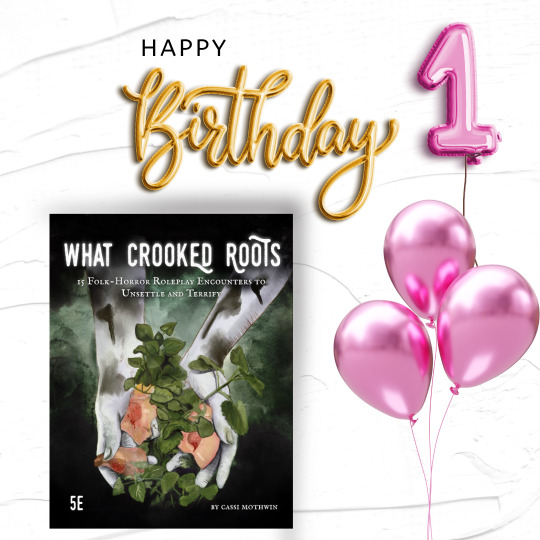
What Crooked Roots released 1 year ago today!
Never did I imagine the dominoes that would fall after my first TTRPG product went live. Thank you to anyone who has purchased it, left a review, or told your friends.
To start the celebrations, the digital edition is 50% off! Find it here!!
Inspired by the settings and themes of The Wicker Man, Over the Garden Wall, The Ritual and many other folk horror tales, comes What Crooked Roots: 15 folk-horror themed roleplay encounters created for Fifth Edition.
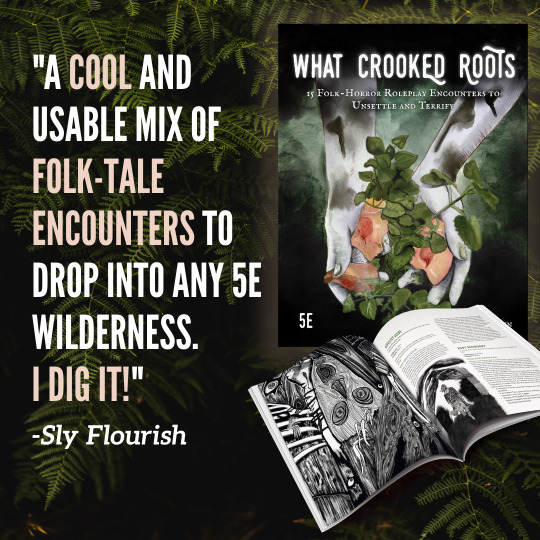
Focusing on western tropes and anxieties, What Crooked Roots flips some expectations and reinvents others for a fresh but familiar series of scary scenarios. With a haunting range of encounters that vary in length and difficulty, you’re sure to find something that lingers with your party well beyond their travels…
Explore cursed corn fields growing something wicked.
Meet beekeepers who hide a secret.
Unearth forgotten, haunted groves.
Crack a black egg or see if it hatches.
Hear the whisper of something following in the shadows.
Feast on the fruit with human teeth inside instead of seeds.
Flee the Groat Man as it hunts you through an abandoned village.
And much more!
#dnd#dnd encounter#ttrpg#roleplay#by cassi mothwin#buy it for the art if nothing else#seriously#it's only $5 for a limited time#you need to meet the beekeepers#don't even get me started on the groat man
55 notes
·
View notes
Text

[Pinterest]
Check out Tabletop Gaming Resources for more art, tips, and tools for your game!
#encounter#monster#npc#horror rpg#tabletop rpg#rpg#tabletop gaming#pen & paper#roleplayer#roleplaying games#games#inspiration.pen & paper games#dnd#d&d#pathfinder#dungeons & dragons#dungeons and dragons#fantasy rpg#scifi rpg#sci-fi rpg#science fiction
158 notes
·
View notes
Text
guess who swore allegiance to strahd :) its lenore :) im not ok :)
#session was. BAD#curse of strahd#many fun character moments but also jesus fucking Christ#we rly had it all today: combat encounter‚ fun shenanigan solutions to problems‚ solid tense roleplay‚ political intrigue.......#romantic tropes talk‚ trauma response‚ flirting‚ crying (so much crying)#lenore baby boy martikov my sweet child you are a moron and an idiot
6 notes
·
View notes
Text
sometimes when I'm thinking of npcs I'll make them a little special to keep things interesting but that special thing is actually giving them enough trauma that my players will want to keep talking to them because they feel bad
#ttrpg#ttrpgs#dnd#dnd campaign#npc d&d#dnd npc#i dont know how the fuck to plan combat encounters so i try to distract my players with roleplay
8 notes
·
View notes
Photo
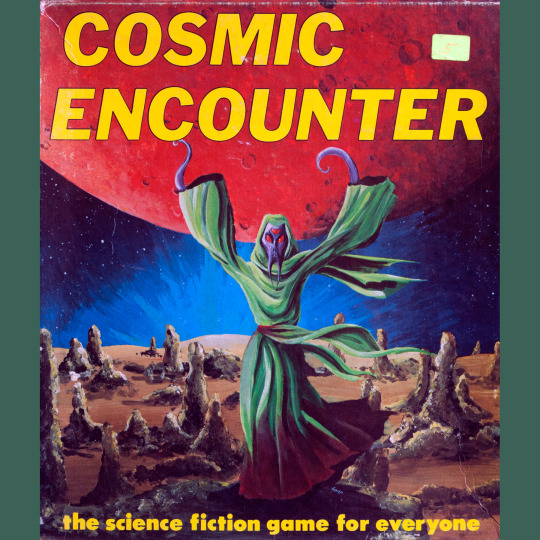
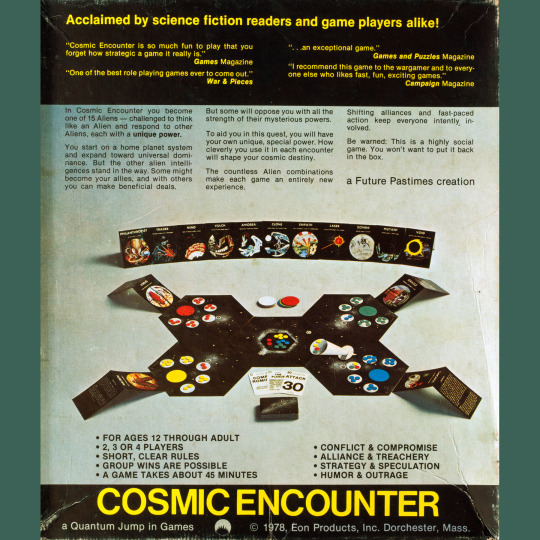

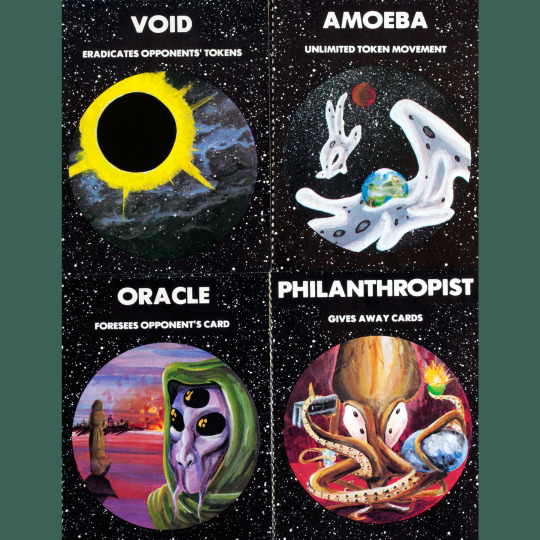
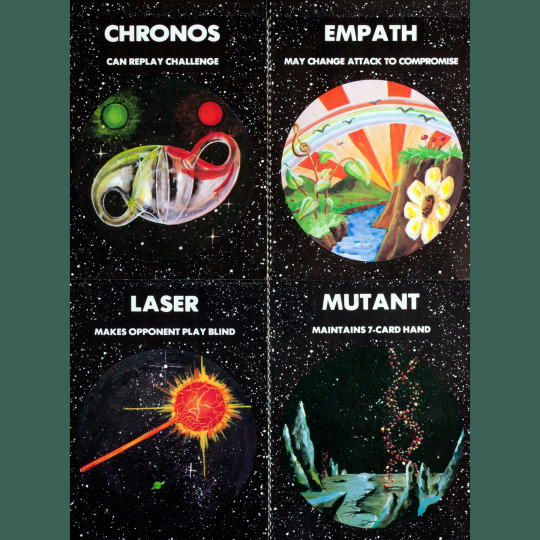
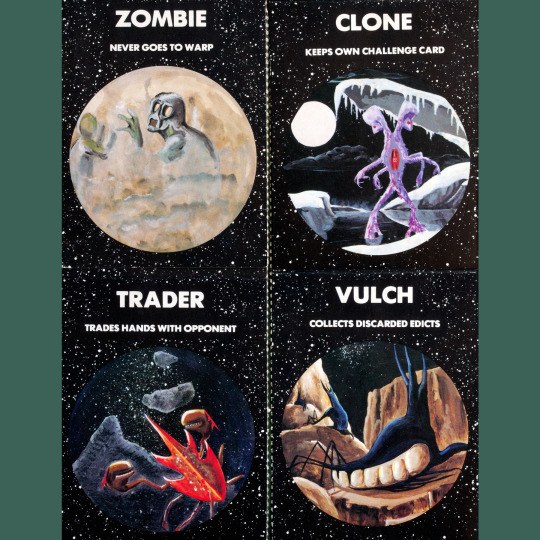
No filler here, this is the first edition, second printing (I think) of Cosmic Encounter (1977), the science fiction game for everyone! Created by Eon Productions, this is a stone cold classic board game of the 70s.
The core rules are simple. You have your alien and your system. You need to colonize five planets outside your system. The player on defense is selected randomly. Conflict is resolved through combat and augmented through alliance, with other players joining the attack or the defense. It is possible to resolve an attack through timed diplomacy as well (or to feign diplomacy to gull your opponent into playing a Negotiate card against your attack card). Already we have a pretty fast, pretty complex strategy game.
The real joy of the game is the aliens, which are selected randomly at the start of the game and have special powers. Those powers modify and sometimes outright break the core rules in specific ways, allowing alternative paths to victory or specific advantages in conflict. There’s a big pool of aliens (expansions, of course, introduce ever more), which essentially ensures no two sessions of Cosmic Encounter will ever play the same.
It’s a massively influential game, basically the first to popularize the idea of having a set of core rules that get modified for each player. You can see this influence in stuff like Dune and Illuminati and on into the RPG-lite board games that start showing up in the 80s. Richard Garfield cited Cosmic’s idea of delivering a new experience with each play session as super important for the development of Magic: The Gathering. There are numerous editions, the latest, I think, being a well-expanded one from Fantasy Flight that my game group played the hell out of for a while.
This early edition features rad art by, I believe, Dean Morrissey. It is my favorite look of the game.
#RPG#TTRPG#Tabletop RPG#Roleplaying Game#D&D#dungeons & dragons#Board Game#Eon Productions#Cosmic Encounter
127 notes
·
View notes
Note
Good god, what is going on here?! Surely, no-one could be this cruel? -AsktheSPNarrator
NO
NONONONO
Stay away
Stay
Away
Stay away
Don't hurt me
Don't huet me
Please please
Please
#roleplay#tsp#the stanley parable#stanley tsp#asks#Askthespnarrator#*Absolute wheeze of delight*#WELCOME TO TRAUMATIZED AND BORDERLINE INSANE STANLEY TIME!#He does not trust any Narrator anymore#And actively has a trauma reaction when he encounters one!#Good luck! <3 /lh
26 notes
·
View notes